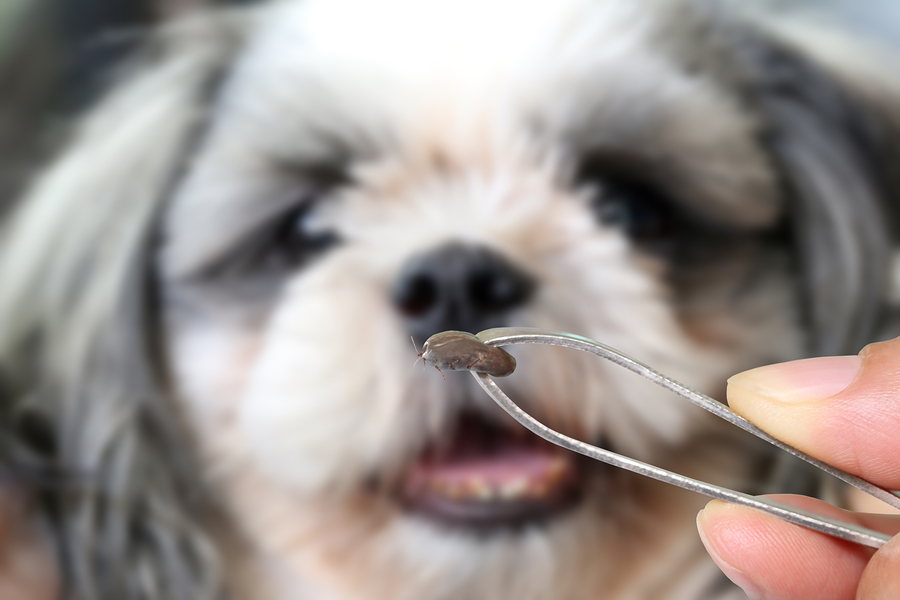READY TO GET STARTED?
REQUEST A FREE ESTIMATE
Fill out the form below or call (888) 466-7849 for a free, no-obligation estimate.

Fleas and ticks are pesky little pests that suck the life out of your pets and family (literally)! These parasites can cause your dogs, cats, children, or other family members a lot of discomfort and even pose serious health risks.
Fleas can be found in almost any environment but are more active in warm, humid climates. Once your house is infested, though, fleas can thrive even after temperatures drop. And they can cause severe allergic reactions in pets, a condition called flea allergy dermatitis (FAD), which can make pets extremely uncomfortable, causing itching, inflammation, excessive scratching, and even subsequent skin infections if left untreated. Older pets are even more at risk as a flea infestation can leave them weak and make treatment and recovery more difficult.
A flea infestation usually isn’t hard to spot. Your pet will most likely be scratching or grooming themselves excessively. When checked, you may even see adult fleas on their body or in their hair. Routinely use a flea comb on your pet to check for and remove fleas.
The best way to prevent fleas is to treat your pets with flea control products consistently, usually applied directly to your pet’s skin or given orally. Some products may even help to prevent dog heartworm, which can develop from mosquito bites. Look for products that treat both adult fleas and other stages of the flea life cycle.
If you have a flea infestation in your home, getting rid of them can be difficult and time-consuming. It’s best to contact a pest control company to establish a treatment schedule for both inside and outside the home. Your pet will need to be removed from the house during flea treatments and for a specified length of time afterwards. You can also help to get rid of fleas and prevent a future infestation by vacuuming regularly and removing old pet bedding, blankets, toys, and any other items regularly used by your pet.
Ticks can be a real concern to people and pets, especially during Spring and Fall months. Their bites are painful and cause skin irritations in some cases, but they also transmit several diseases including Lyme disease and Rocky Mountain spotted fever, which can cause serious illness or even death. The brown dog tick, commonly found on pets, can even infest your home.
Check your pets regularly for ticks. Larger ticks can usually be seen while smaller ones may not be so obvious. If you find a tick, safely remove it using a tick removal tool or with tweezers, only applying a small amount of pressure until the tick lets go. Any other method can be painful for your pet or cause skin irritations.
Prevent ticks by treating your pet with a tick control product, commonly included in topical flea treatments. Keep pets out of wooded areas or overgrown vegetation. Cut your grass regularly, keep plants and shrubs trimmed, and clear out leaves and other yard debris.
Categories